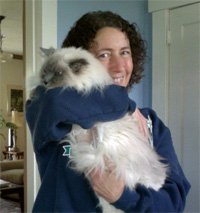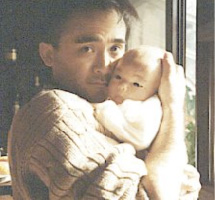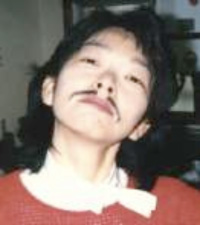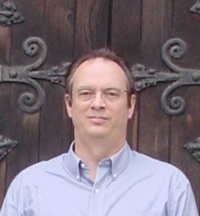Peace Poems / Piece Poems : Characters
Let's begin by introducing the persons speaking throughout this work | Frida:Is a forensic archeologist specializing in the analysis of ancient excrement. Currently on sabbatical in eastern Indonesia, she's examining pre-historic coprolites to ascertain when humans first appeared in that region. An avid reader & art lover, she is also interested in promoting human rights and non-violent conflict resolution. Having worked as a criminal pathologist for a decade before entering academia, she knows a good deal about violence. In her early 30s she was also married to a jerk who got violent when drinking. Since turning 40 she's attempted to live "uncomplicated by intimate relationships" in near Copenhagen with her aging cat. Her grandfather's first-hand stories of WWII occasionally haunt her – at times she wonders whether all human civilization will amount to anything more than scat. Though cynical by instinct, she also manifests an instinctive concern for the welfare of others, expect for the brief moments she is genuinely pissed.Favorite drink:She'll rave about organic, shade-grown, bird-friendly, direct-trade brands such as Cafe Selvanica or Cafe San Ramon, but also settle for any freshly ground espresso by barristers that do not overcharge. She detests so-called "American blends" & coffee polluted by white sugar. Don't talk to her about freeze-dried stuff.Favorite saying:
“ We hunger to be acknowledged as people who care about something higher and more important than our own self-interest. We hunger
for communities of meaning that can transcend the individualism and selfishness that we see around that and us will
provide an ethical and spiritual framework that gives our lives some higher purpose.”, | |
 | Satoru:A correspondent in Java with a dual degree in economics and journalism from a university in Hiroshima. His view of the world has changed a lot since becoming a father. "I hope my son will inherit in a better world," he muttered thoughtfully. Though Satoru's family hesitated to accept his Indonesian wife at first, her warmth melted their resistance. In his college days Satoru was something of an idealist who dreamed of bringing "honesty and integrity to reporting". However, after observing how newspapers run he's begun to wonder if that's possible. Not one to worry too deeply, he tends to shrug problems off like raindrops on bamboo. Now and then he dreams of opening a coffee shop in his hometown. Since becoming a parent, though, he's become more cautious about big decisions. Satoru now fears he'll end up like his father: trapped in a job that offers economic security, but saps his spirit.Favorite drink:Prefers green tea, but will ingest anything when doing business. His wife is trying to teach him the mysteries of Kopi Luwak (a coffee bean that's passed through the digestive tract of a palm civet), but he hasn't joined that circle of aficionados. When perplexed, he delights in a ritual cup of Irish coffee. With his Islamic in-laws, a hearty Mandhling suffices to keep the conversation flowing. With his Japanese relatives, however, he seldom downs anything other than their homegrown tea – unless a bottle of Wakatake Onikoroshi saké [“ Young Bamboo Demon-Slayer Rice Wine”,] is opened.Favorite saying:
|
|
 | Ying:The only child of a Chinese diplomat and an Indonesian banker, she was educated at American prep schools and actually sounds more North American than Sino-Indonesian. Now 35 and single, she's reluctant to mention her gender preferences to her parents. Until recently she was working in Jakarta for a major coffee consortium. However, with a recent economic downturn she lost her job. Instead of feeling bitter, She's decided to become a freelance writer in Indonesia, where the cost of living is cheap and the lady she loves resides. Living in a modest apartment in the capital, one of few her luxuries is a cup of gourmet coffee twice a week. Another is a tri-weekly yoga/meditation class. Her flat mate Indira also offers the most exquisite massages. Now into her third year as a freelance, money has become scarce.Favorite drink:She'll taste-test nearly anything once, but few things twice. And her preferences seem to change each year. Now she is into local fresh-roasted Espresso Aficionados. Ying claims to drink mostly "fair trade" or "direct trade" blends, but since her income has dropped she's been more willing to compromise and drink "whatever that tastes good". Her friend Indira has urged her to forego coffee entirely and "cleanse her system" according to Ayur Vedic principles. However, something in her craves caffeine. "everyone should be allowed one addiction," she shrugs.Favorite saying:“ Don't spend your precious time asking ‘Why isn't the world a better place?’ It will only be time wasted. The question to ask is ‘How can I make it better?’ To that question, there is an answer.” – Leo Buscaglia, "The Way of the Bull" (1973, Fawcett crest, p. 125) |
|
 | Dmiritri:Middle-aged son of a former Dutch arms merchant, he spent the first twenty years of his life in pursuit of sensual thrills. Fluent in English, Russian, Dutch, and rapidly picking up Indonesian, he went through the best private schools in Europe. The only things Dmiritri showed particular zest for were astronomy and art. His father hoped he would study business administration take over the family business. However Dmiritri sensed that wealth was tainted. After all, daddy sold death. After college he worked for an environmental NGO. The experience was good, though some naivete was lost. After his first divorce at age 42 he had a spiritual awakening. He became an unconventional Christian. Though serious about his own practice, other Christians considered him too tolerant of other faiths. In recent years he's changed his lifestyle and stopped hating others. He also has felt more inner peace. As heir to a modest fortune, he decided to launch a small NGO promoting sustainable agriculture in Indonesia. Why there? "Well, much of father's wealth came from here and I suppose I have a debt to repay," Dmiritri commented.Favorite drink:A few years back almost any hi-caffeine, syrupy, sweet blend with milk & honey would do. . . More recently he prefers straight black, dark Java blends with an earthy flavor. However, at times nothing seems better than a glass of freshly squeezed mango juice with a bit of lime.Dmiritri detests coffees sold by multi-national corporations not because of the flavor, but because of the economics. "You can know a lot about a person simply by observing what they eat and drink" he recently remarked. Favorite saying:Over his desk is a quote attributed to Goethe. The skeptic in him questions the authenticity, but another part of him does not care -“ Things which matter most must never be at the mercy of things which matter least.” |